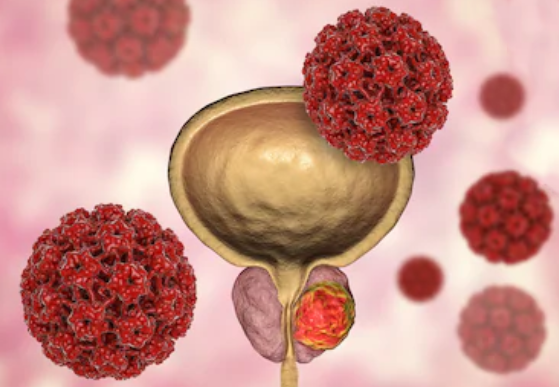 Prostate cancer is an epithelial malignant tumor that occurs in the prostate and is the most common tumor of the male genitourinary system. Prostate cancer is highly prevalent in elderly men, with 80% of cases occurring in men over 65 years of age. The global incidence of prostate cancer continues to rise, and there were nearly 1.3 million new cases and 359,000 deaths worldwide in 2018. The pathogenic factors of prostate cancer have not been fully elucidated, and may be related to age, race, genetics, environment, food, obesity, and sex hormones.
Prostate cancer is an epithelial malignant tumor that occurs in the prostate and is the most common tumor of the male genitourinary system. Prostate cancer is highly prevalent in elderly men, with 80% of cases occurring in men over 65 years of age. The global incidence of prostate cancer continues to rise, and there were nearly 1.3 million new cases and 359,000 deaths worldwide in 2018. The pathogenic factors of prostate cancer have not been fully elucidated, and may be related to age, race, genetics, environment, food, obesity, and sex hormones.
Prostate screening. Prostate-specific antigen (PSA) test combined with the digital rectal examination (DRE) helps to identify prostate cancer in the earliest stages.
Confirmed prostate cancer. If the DRE or PSA test finds abnormalities, further examinations for prostate cancer are required.
Prostate cancer grade judgment
Creative Biogene's prostate cancer diagnostic products are often used in prostate screening. Most of them are one-step serum, plasma or whole blood PSA test kits. Their analysis modes include enzyme immunoassay, chemiluminescent immunoassay and rapid molecular determination, etc., have the following advantages:
Creative Biogene is an expert in the field of prostate cancer diagnosis. More discounts, more surprises, we look forward to your selection! We will provide you with our optimal products.
Please contact us for more details.
Reference
| Cat# | Product Name | Product Type | Inquiry |
|---|---|---|---|
| C0093A | SLC45A3 polyclonal antibody | Antibody | Inquiry |
| C0094A | KLK10 polyclonal antibody | Antibody | Inquiry |
| C0095A | ALKBH3 polyclonal antibody | Antibody | Inquiry |
| C0096A | ANO7 polyclonal antibody | Antibody | Inquiry |
| C0097A | ELAC2 polyclonal antibody | Antibody | Inquiry |
| C0098A | PCDH11X polyclonal antibody | Antibody | Inquiry |
| C0099A | PCDH11Y polyclonal antibody | Antibody | Inquiry |
| C0100A | PDZD2 polyclonal antibody | Antibody | Inquiry |
| C0101A | Prostein monoclonal antibody | Antibody | Inquiry |
| C0102A | STEAP2-Specific polyclonal antibody | Antibody | Inquiry |
Copyright © 2026 Creative Biogene. All rights reserved.